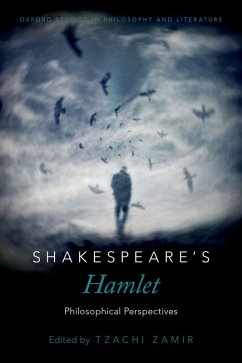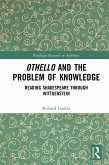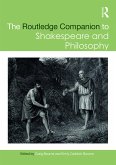Does philosophy gain or lose when it is embedded within literature or embodied by drama? Does literary criticism gain or lose when it turns to literary works as occasions for abstract reflection? Leading literary scholars and philosophers interrogate philosophical dimensions of Shakespeare's
Hamlet with these urgent questions in view. Scholars probe Hamlet's own insights, assess the significance of philosophy's literary-dramatic framing by this play, and trace the philosophically-relevant underpinnings revealed by historical transformations in
Hamlet's reception. They focus on the play's thematizations of subjectivity, knowledge, sex, grief, self-theatricalization. Examining Shakespeare's play from a philosophical standpoint sharpens the questions the play itself so famously poses: What counts as a proper response to injustice upon realizing that whatever one does, there can be no undoing of the initial wrong? What do our commitments to the dead amount to? How to persist in infusing significance into action while grasping the degradation of death and our own replaceability? Scholars at the forefront of their fields tackle these and other questions from a wide range of viewpoints, illuminating the central concerns of one of Shakespeare's masterpieces.
Dieser Download kann aus rechtlichen Gründen nur mit Rechnungsadresse in A, B, BG, CY, CZ, D, DK, EW, E, FIN, F, GR, HR, H, IRL, I, LT, L, LR, M, NL, PL, P, R, S, SLO, SK ausgeliefert werden.
Hinweis: Dieser Artikel kann nur an eine deutsche Lieferadresse ausgeliefert werden.









